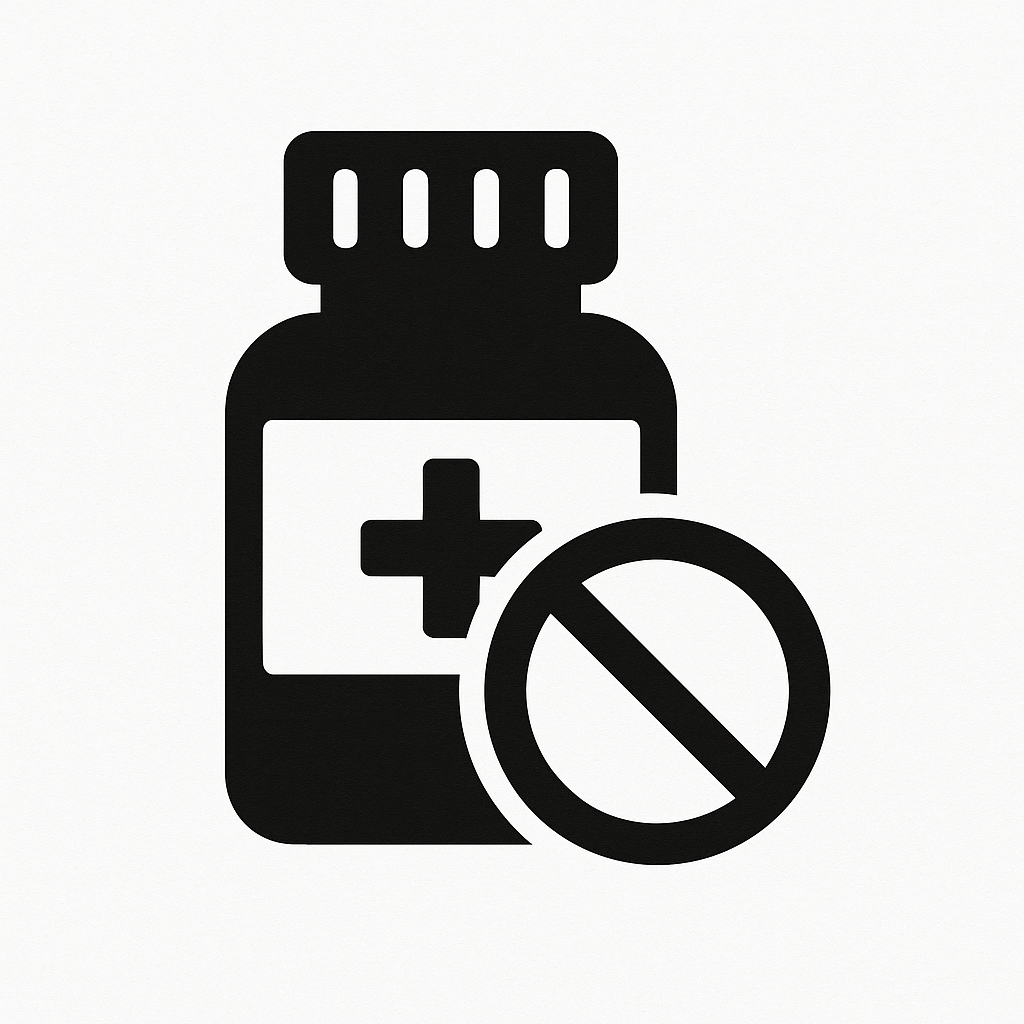
Pregnancy After Miscarriage: Tips, Support, and Steps to Conceive Naturally
The journey through miscarriage is one that no woman expects to take, yet it's far more common than many realize. Approximately fifteen to twenty percent of known pregnancies end in miscarriage, with the actual number likely higher when accounting for very early losses. While this statistic offers little comfort in the midst of grief, it does illuminate an important truth: you are not alone, and for the vast majority of women, miscarriage does not prevent future successful pregnancies.
The path to pregnancy after miscarriage is deeply personal, intertwining physical recovery with emotional healing. Questions flood your mind during this vulnerable time: When can I try again? Will it happen again? What can I do differently? How do I cope with the fear? This comprehensive guide addresses these concerns with compassion and evidence-based information, offering practical steps to support both your body and spirit as you move forward.
Understanding that each woman's experience is unique, this article provides a framework for healing and preparation that you can adapt to your individual circumstances, always in consultation with your healthcare provider who knows your specific medical history.
Understanding Miscarriage: Knowledge as Foundation
Before moving forward, understanding what happened can provide clarity and, for many women, relief from unwarranted self-blame. Miscarriage occurs for various reasons, most of which are completely beyond anyone's control.
Common Causes of Miscarriage
The majority of early miscarriages result from chromosomal abnormalities in the embryo—random genetic errors that occur during cell division. These chromosomal issues are not inherited and don't indicate problems with either parent's genetics. Rather, they represent the natural variability in the conception process.
Other causes include hormonal imbalances such as progesterone deficiency or thyroid disorders, uterine structural abnormalities, maternal health conditions like uncontrolled diabetes or autoimmune disorders, infections, and advanced maternal age. It's crucial to understand that miscarriage is rarely caused by normal activities, moderate exercise, sexual intercourse, or working, despite the guilt many women carry.
Recurrent Miscarriage
While one or even two miscarriages are often attributed to chance, experiencing three or more consecutive losses may warrant specialized medical evaluation. In these cases, identifiable causes can sometimes be found and treated, including chromosomal issues in parents, blood clotting disorders, anatomical problems, or hormonal imbalances. If you've experienced multiple losses, comprehensive testing with a reproductive specialist can provide valuable insights.
Physical Recovery: Healing Your Body
Physical healing is the foundation upon which emotional recovery and future pregnancy success are built. Your body has undergone significant changes, and giving it time and support to recover fully is essential.
The Physical Timeline
The immediate physical recovery from miscarriage varies depending on how far along the pregnancy was and whether the loss occurred naturally, required medication, or involved surgical intervention. Generally, bleeding may continue for one to two weeks, though spotting can persist longer. Most women experience their first period within four to six weeks after miscarriage, though this timeline varies considerably.
Hormone levels, particularly hCG (human chorionic gonadotropin), typically return to pre-pregnancy levels within four to six weeks. Until hormones normalize, you may experience breast tenderness, mood fluctuations, and other pregnancy symptoms that can be emotionally difficult. Your body is recalibrating, and patience with this process is important.
Supporting Physical Healing
Allow your body adequate rest in the days and weeks following miscarriage. While you don't need to remain bedridden, honor your energy levels and avoid strenuous activities until your healthcare provider gives clearance. Proper nutrition becomes especially important during recovery—focus on iron-rich foods if you've experienced significant bleeding, incorporate plenty of protein to support tissue healing, and ensure adequate hydration.
Gentle movement, when you feel ready, supports both physical and emotional recovery. Light walking improves circulation, boosts mood through endorphin release, and helps prevent blood clots. Listen to your body's signals about when to rest and when gentle activity feels beneficial.
Monitor for warning signs that require immediate medical attention: heavy bleeding that soaks through more than two pads per hour, severe abdominal pain, fever above 100.4°F, foul-smelling vaginal discharge, or dizziness and fainting. These symptoms could indicate complications requiring prompt treatment.
Emotional Healing: Honoring Your Grief
The emotional impact of miscarriage extends far beyond physical recovery. Grief, anger, guilt, anxiety, and profound sadness are all normal responses to pregnancy loss. Giving yourself permission to grieve is not optional—it's essential.
Acknowledging the Loss
Miscarriage represents the loss of a hoped-for future, dreams, and expectations. Whether the pregnancy was planned or unexpected, early or further along, your feelings are valid. Society sometimes minimizes early pregnancy loss, but your experience of grief is real and deserves recognition.
Some women find comfort in memorial rituals—planting a tree, creating a memory box, writing a letter to the baby, or participating in pregnancy loss support groups. Others prefer private reflection. There is no "right" way to grieve, only your way.
Processing Complex Emotions
Guilt is perhaps the most common and most painful emotion following miscarriage. Women often replay events, wondering if they caused the loss by exercising, working too hard, or not being careful enough. This self-blame, while understandable, is almost never based in reality. Most miscarriages occur due to factors completely outside your control.
Fear about future pregnancies is equally common. The innocence of pregnancy has been lost, replaced by hypervigilance and anxiety. Acknowledging these fears rather than suppressing them allows you to work through them with support.
Seeking Support
Professional counseling from a therapist specializing in pregnancy loss can provide invaluable tools for processing grief and managing anxiety about future pregnancies. Support groups, whether in-person or online, connect you with women who truly understand your experience in ways that even well-meaning friends and family may not.
Don't underestimate the importance of communicating with your partner. Miscarriage affects both partners, though often in different ways and timelines. Creating space for honest conversation about feelings, fears, and hopes helps maintain connection during a time that can feel isolating.
When to Try Again: Timing Considerations
One of the most pressing questions after miscarriage is when you can or should try to conceive again. The answer involves both medical and emotional considerations.
Medical Recommendations
Traditional advice often suggested waiting three months before attempting conception after miscarriage. However, recent research challenges this guidance. Multiple studies indicate that women who conceive within three months of miscarriage have similar or even slightly better outcomes compared to those who wait longer.
That said, individual circumstances matter. If you required surgical intervention (D&C), had complications, or experienced miscarriage in the second trimester, your healthcare provider may recommend a longer recovery period. Similarly, if testing revealed treatable causes for the miscarriage, addressing these issues before conceiving again is important.
The physical readiness markers include resumed normal menstrual cycles, normalized hCG levels (important for accurate pregnancy dating and testing), physical recovery from any procedures, and resolution of any complications.
Emotional Readiness
Physical capability to conceive doesn't necessarily align with emotional readiness. Some women feel ready to try again immediately, finding hope in moving forward. Others need more time to process their loss before facing the anxiety that often accompanies pregnancy after miscarriage.
Questions to consider when evaluating emotional readiness include: Have you allowed yourself to grieve? Can you distinguish between honoring your loss and being ready for another pregnancy? Do you have support systems in place for managing pregnancy anxiety? Are you and your partner on the same page about timing?
There's no universal "right" time. Trust yourself to know when you're ready, even if that timing differs from medical clearance or others' expectations.
Natural Strategies to Optimize Fertility
Once you've decided to try conceiving again, supporting your body's natural fertility optimizes your chances of healthy conception and pregnancy.
Nutritional Foundation
Nutrition plays a fundamental role in fertility and early pregnancy health. A nutrient-dense diet rich in folate from dark leafy greens, legumes, and fortified grains supports neural tube development. Iron from lean meats, beans, and fortified cereals replenishes stores that may be depleted after miscarriage. Omega-3 fatty acids from fatty fish, walnuts, and flaxseeds support hormone production and reduce inflammation.
Antioxidant-rich foods including colorful fruits and vegetables protect egg quality from oxidative stress. Quality protein from diverse sources supports hormone production and uterine health. Complex carbohydrates with a low glycemic index help maintain stable blood sugar and insulin levels, both important for reproductive health.
Essential Supplements
A high-quality prenatal vitamin containing at least 400-800 mcg of folate (or methylfolate for women with MTHFR variations) should be started before conception. Folate is crucial for preventing neural tube defects and supporting early embryonic development.
Vitamin D deficiency correlates with increased miscarriage risk and fertility challenges. Many women are deficient, making testing and appropriate supplementation important. Omega-3 fatty acids, particularly DHA, support reproductive health and reduce inflammation that may interfere with implantation.
Coenzyme Q10 (CoQ10) research suggests benefits for egg quality, particularly in women over thirty-five. This antioxidant supports cellular energy production in eggs. Vitamin E and selenium provide additional antioxidant protection for reproductive tissues.
B-complex vitamins beyond folate—including B6 and B12—support hormonal balance and may help maintain early pregnancy. Many women benefit from additional vitamin B6 for progesterone support.
Hormone Balance Support
Vitex (chasteberry) has traditional use for supporting progesterone production in the luteal phase, the time between ovulation and menstruation when adequate progesterone is essential for implantation and early pregnancy maintenance. Some evidence suggests it may help women with luteal phase defects or irregular cycles.
Myo-inositol shows promise for improving egg quality and supporting healthy insulin function, which affects hormonal balance. It's particularly beneficial for women with polycystic ovary syndrome (PCOS).
Evening primrose oil, used only before ovulation, may improve cervical mucus quality to support sperm transport. It should be discontinued after ovulation as its effects on early pregnancy are unclear.
Lifestyle Optimization
Maintaining a healthy body weight improves fertility outcomes, as both underweight and overweight status can affect hormonal balance. Regular moderate exercise supports overall health and stress management without overdoing intensity that might disrupt cycles.
Stress management through yoga, meditation, acupuncture, or other relaxation practices can positively influence fertility by reducing cortisol levels that interfere with reproductive hormones. Quality sleep of seven to nine hours nightly supports hormonal regulation and overall health.
Avoiding alcohol, minimizing caffeine to under 200mg daily, and eliminating smoking are standard recommendations for optimizing fertility and pregnancy outcomes. Reducing exposure to endocrine-disrupting chemicals found in certain plastics, pesticides, and personal care products may also benefit fertility.
Tracking Your Cycle and Optimizing Timing
Understanding your cycle and identifying your fertile window maximizes conception chances while minimizing the time spent trying, which can be emotionally taxing after pregnancy loss.
Fertility Awareness Methods
Tracking basal body temperature involves taking your temperature each morning before rising and charting the pattern. Temperature rises slightly (0.5-1°F) after ovulation due to progesterone. While this confirms ovulation occurred, it doesn't predict it in advance.
Monitoring cervical mucus changes throughout your cycle helps identify approaching ovulation. As estrogen rises before ovulation, cervical mucus becomes more abundant, clear, stretchy, and slippery—resembling raw egg whites. This fertile-quality mucus supports sperm survival and transport.
Ovulation predictor kits detect the luteinizing hormone (LH) surge that triggers ovulation approximately 24-36 hours later. Testing once or twice daily during your expected fertile window helps identify optimal timing.
Fertility tracking apps can help consolidate multiple data points, though they work best when combined with physical signs rather than relying on calendar predictions alone, as cycle length varies.
Optimal Timing for Conception
The fertile window spans approximately six days—the five days before ovulation and ovulation day itself. Sperm can survive in fertile cervical mucus for up to five days, while the egg is viable for about 12-24 hours after release.
Research suggests the days with highest conception probability are the two days before ovulation and ovulation day. Having intercourse every one to two days during your fertile window optimizes chances without creating pressure that can affect intimacy.
Preparing for Pregnancy After Miscarriage
When you do conceive again, managing anxiety and taking proactive health steps can help you navigate this emotionally complex time.
Early Pregnancy Support
Contact your healthcare provider as soon as you get a positive pregnancy test. They may offer early monitoring including blood tests to check hCG levels doubling appropriately, early ultrasounds for reassurance, and progesterone testing or supplementation if indicated by your history.
Continue your prenatal vitamins and any supplements your provider recommends. Maintain the healthy lifestyle habits established while trying to conceive. Pay attention to your body but resist the urge to over-analyze every symptom, a challenging balance after loss.
Managing Pregnancy Anxiety
Anxiety in pregnancy after loss is completely normal. The innocence and joy of pregnancy have been complicated by your experience. Strategies that help include acknowledging your feelings without judgment, connecting with support communities specific to pregnancy after loss, practicing mindfulness and grounding techniques when anxiety spikes, and communicating openly with your healthcare provider about your concerns.
Some women find it helpful to set small milestone goals—making it to the point where they lost the previous pregnancy, seeing a heartbeat on ultrasound, completing the first trimester—rather than focusing on the distant due date. Celebrate these milestones as achievements while acknowledging the ongoing journey.
Professional counseling can provide essential support in managing pregnancy anxiety, processing triggers, and developing coping strategies for the nine months ahead.
Medical Support and Testing
Depending on your circumstances, certain medical interventions or testing may be appropriate.
When to Seek Medical Evaluation
After one miscarriage, most healthcare providers recommend trying again without extensive testing, as single losses are often random events. After two miscarriages, some providers begin evaluation, though practices vary. After three or more losses, comprehensive testing is standard.
Testing may include karyotyping (chromosomal analysis) of both partners, thrombophilia screening for blood clotting disorders, antiphospholipid antibody testing, thyroid function tests, uterine cavity evaluation through hysterosonography or hysteroscopy, and hormonal assessments.
Treatment Options
If testing identifies specific issues, treatments may include progesterone supplementation for luteal phase defects, thyroid medication for thyroid dysfunction, blood thinners like low-dose aspirin or heparin for certain clotting disorders, surgical correction of uterine abnormalities, or treatment for underlying conditions like diabetes or autoimmune disorders.
Even when no cause is identified (unexplained recurrent miscarriage), supportive care, close monitoring, and tender loving care (TLC) protocols can improve outcomes. The psychological benefits of increased monitoring and support may play a role in success rates.
Building Your Support System
Recovery from miscarriage and preparing for future pregnancy shouldn't be journeys you take alone.
Types of Support to Consider
Your partner's support is foundational, though remember they're also grieving and may process differently. Honest communication about individual needs helps. Family and close friends who can listen without judgment provide essential emotional support. Be clear about what you need—sometimes it's advice, other times just presence.
Online communities and forums connect you with women experiencing similar journeys, offering validation and practical tips. National organizations like Share Pregnancy and Infant Loss Support and the Miscarriage Association provide resources and connections.
Professional therapy, particularly from counselors specializing in pregnancy loss and infertility, offers tools for processing trauma and managing anxiety. Some women benefit from both individual and couples counseling.
Support groups, whether in-person or virtual, create spaces where you don't have to explain your feelings to people who inherently understand. Many hospitals and fertility centers host such groups.
Moving Forward with Hope
Miscarriage changes you—there's no returning to the innocence before loss. However, within that change often emerges profound strength, compassion, and appreciation for life's fragility and preciousness. Most women who experience miscarriage go on to have successful pregnancies, though the statistics offer little comfort when you're the one in pain.
Moving forward doesn't mean forgetting or "getting over" your loss. It means integrating the experience into your story while remaining open to hope. It means honoring your grief while also nurturing your dreams. It means recognizing that your previous pregnancy, however brief, mattered, while also believing that future joy is possible.
Be patient with yourself. Healing isn't linear—you'll have good days and difficult ones. Triggers may arise unexpectedly. That's all part of the journey. Surrounding yourself with support, nourishing your body and spirit, and giving yourself grace through the process creates space for both healing and hope.
Supporting Your Journey to Healthy Conception
As you prepare your body for pregnancy after miscarriage, comprehensive nutritional support can make a meaningful difference in your fertility and overall wellness. Quality supplements designed specifically for women's reproductive health provide the essential nutrients your body needs during this important time.
Explore evidence-based solutions formulated to support hormonal balance, fertility, and pregnancy preparation at Matevara's Women's Health Collection. Discover products that can complement your natural approach to conceiving and carrying a healthy pregnancy.
Your journey deserves support every step of the way. Take the next step toward nurturing your body and your dreams.
Disclaimer: This article is intended for informational and educational purposes only and should not be construed as medical advice, diagnosis, or treatment recommendations. The information provided about pregnancy after miscarriage, including physical recovery timelines, emotional healing, fertility optimization, supplement recommendations, and conception strategies, is based on general knowledge and available research, but individual circumstances vary significantly. Every woman's experience with miscarriage and subsequent pregnancy journey is unique and requires personalized medical guidance. Always consult with qualified healthcare providers, including your obstetrician-gynecologist or reproductive endocrinologist, before making decisions about when to try conceiving again, starting any supplement regimen, or implementing significant lifestyle changes. Medical evaluation is particularly important if you have experienced recurrent pregnancy loss, have underlying health conditions, or have concerns about your physical or emotional recovery. The information about supplements, their effects, and their safety during pregnancy preparation has not been evaluated by the Food and Drug Administration, and products mentioned are not intended to diagnose, treat, cure, or prevent any disease. Natural supplements can interact with medications and may not be appropriate for all women. This article does not replace the personalized care, diagnostic testing, treatment recommendations, and emotional support that healthcare professionals can provide based on your specific medical history and individual circumstances. If you experience heavy bleeding, severe pain, fever, or other concerning symptoms after miscarriage, seek immediate medical attention.
Share








